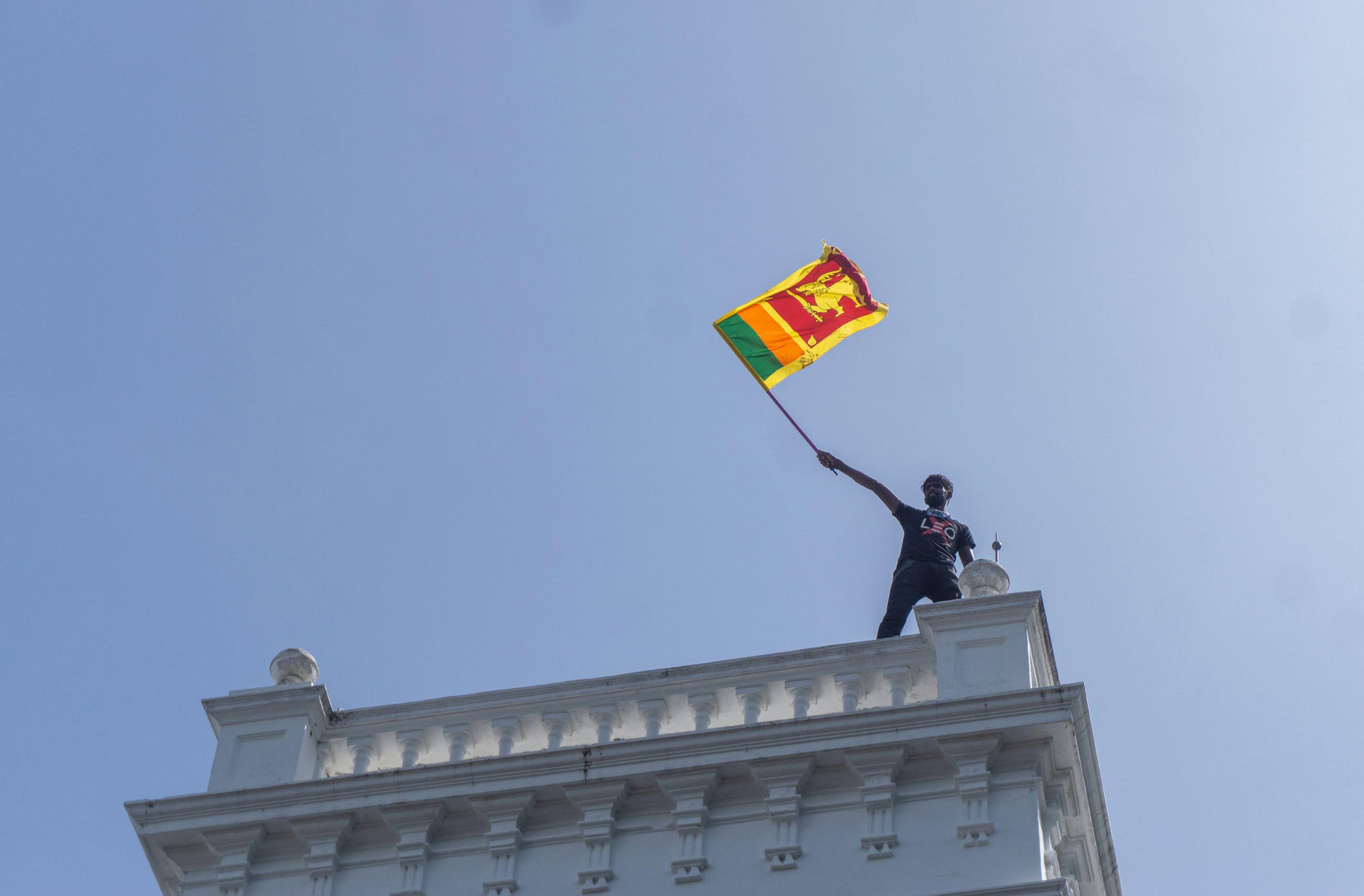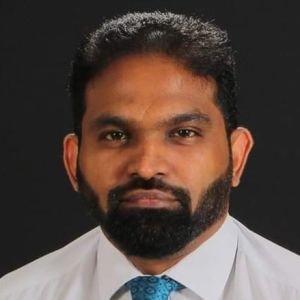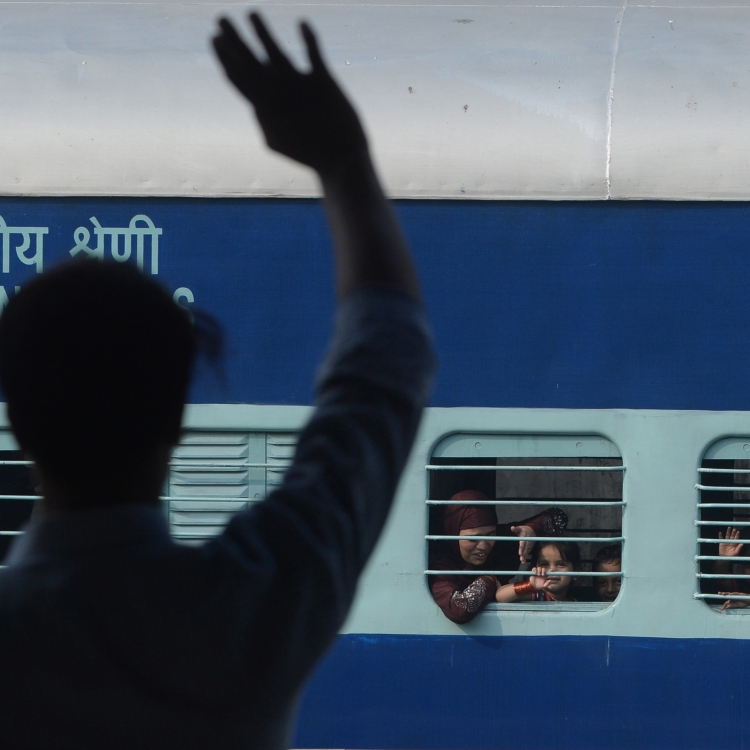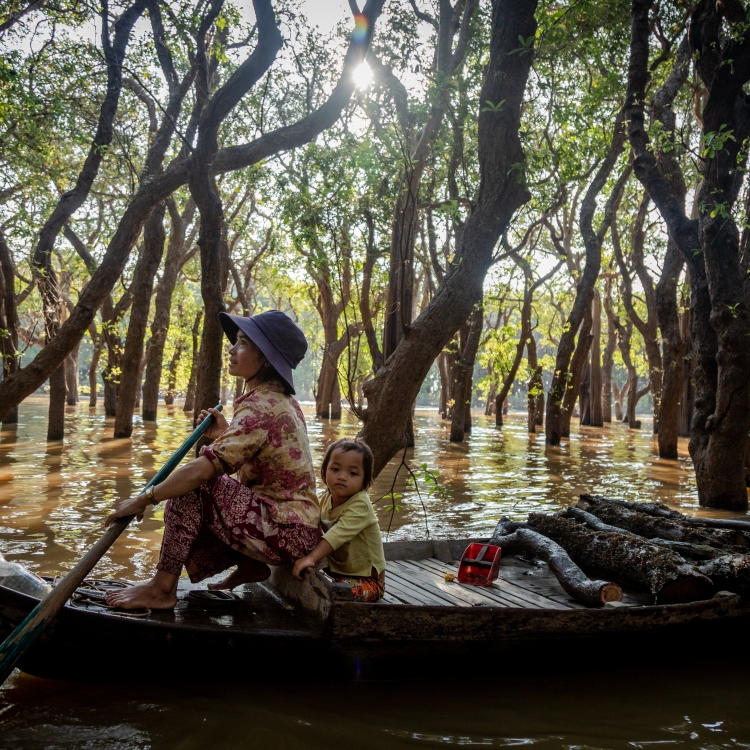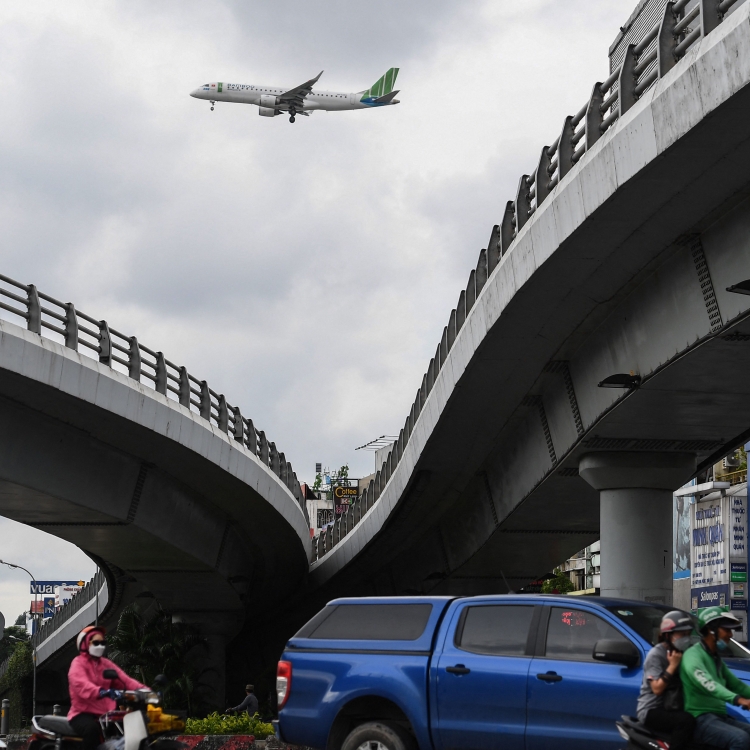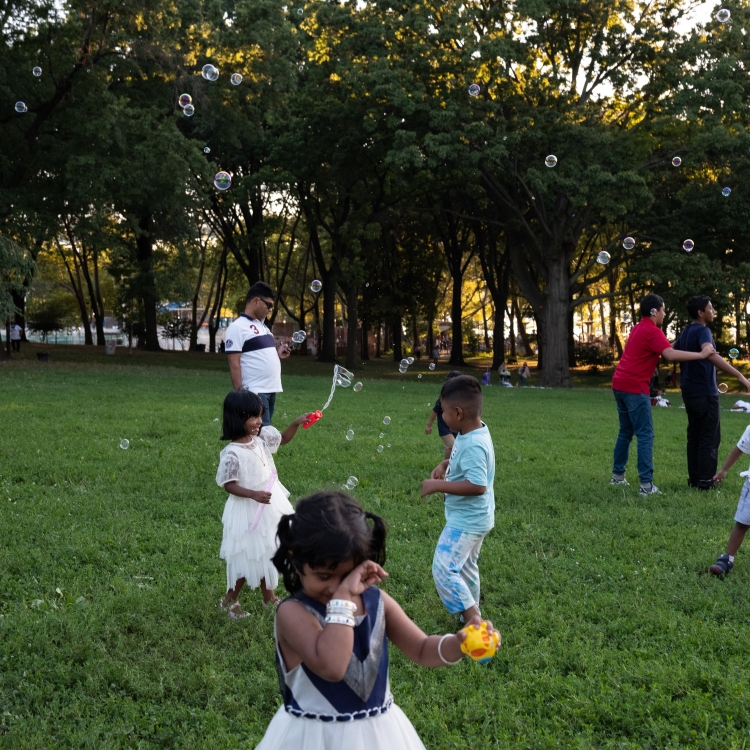magazine text block
In April, the first time I visited the protesters who had gathered in front of the presidential office at Galle Face greens, it felt unreal to me. Their chants of “Gota Go Home,” calling for the resignation of president Gotabaya Rajapaksa rang out loudly as I walked through the quickly expanding protest site. There were scores of young people, but also families with children and the elderly — all from different ethnicities. Some who had come only to see what was going on found themselves joining in. I thought back to 2009, when criticism of the government could put one in the line of fire. That January, my friend, Lasantha Wickrematunge — editor of the Sunday Leader and an outspoken government critic — was assassinated. His murder came two days after my own news station was torched. To protect one’s life demanded self-censorship.
This felt different, but how long would it last?
In 2022 Sri Lanka is facing an unprecedented crisis. Due to financial mismanagement and government inability to manage debt, Sri Lanka’s foreign exchange reserves diminished and it suspended repayments on billions of dollars of international loans for the first time ever. The result was shortages of goods, medicine, gas, and fuel, which had a knock-on effect on every aspect of life. Much has been written about the causes of the crisis and how Sri Lanka arrived at this juncture. Less well-understood is the social changes the social, humanitarian, and human rights crises have sparked.
The ongoing economic crisis has resulted in something quite unique: large numbers of the population protesting against the actions of a government that caused immense hardship. The Colombo protests, which ran from March to August, were led by youth, but other groups, such as farmers, fishermen, and factory workers, also staged protests outside Colombo. Among the protesters included many who had voted for Rajapaksa and regretted their decision. At the Galle Face protest site, people gathered first in hundreds and then thousands and then in the hundreds of thousands.
Initially, the reasons for the protests were primarily economic. However, as they continued, protesters increasingly raised allegations of corruption against the president and his brother, Mahinda, who was then serving as prime minister and was a former president himself. “Bring our money back” was a frequent chant I heard at the protests. These chants were directed at the Rajapaksas who were named and shamed. For years, politicians in Sri Lanka had been able to operate with impunity. Now, for the first time, protesters were demanding accountability.
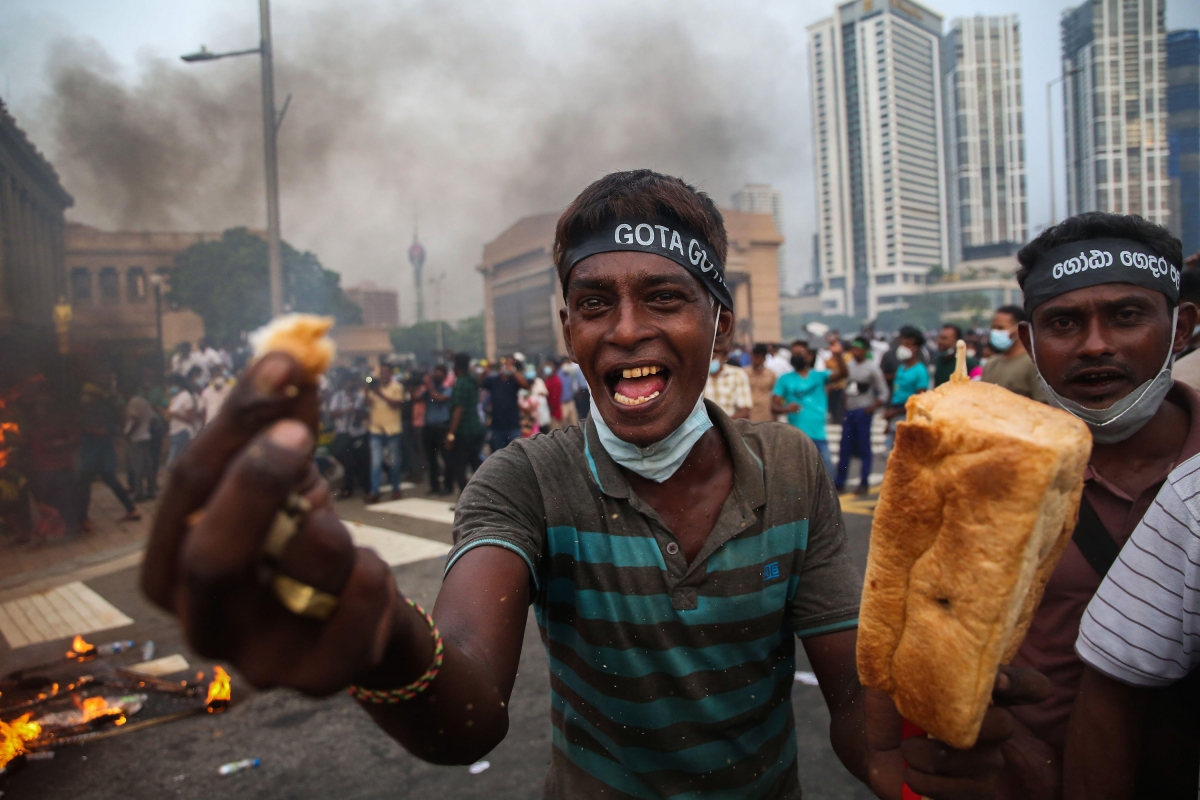
A supporter of Sri Lanka's main opposition displays a loaf of bread to highlight the rising food prices during a protest against the economic crisis that brought fuel shortages and inflation in Colombo, Sri Lanka, on March 15, 2022.
Pradeep Dambarage/Alamy
magazine text block
Reckoning With History
The government’s mishandling of the crisis — as well as the violent response to the protests — has triggered another unlikely change in Sri Lanka; a broader recognition of the atrocities committed during the civil war. Though Sri Lanka’s civil war between government soldiers and Tamil separatists lasted decades, from 1983 to 2009, many Sinhalese in the South have long remained ignorant of the violations experienced by the Tamils and Muslims. The government’s brutal reactions to the recent protests, however, has resulted in growing awareness among Sinhalese of the violent nature of the state.
A phrase increasingly heard in Colombo was, “If they are doing this to protestors in the south, what would they have done in the north and east during the war?” At Galle Face, there were attempts to acknowledge the violent history of Sri Lanka, like the commemoration of the end of the war on May 18. When the national anthem was sung at the protest site only in Sinhala, some protesters highlighted it as a failure to respect Sri Lanka’s diverse society and took the initiative to organize it to be sung in Tamil the very next day.
Is this awareness widespread or is it limited to the urban population? Will it be limited to platitudes and ceremonial acknowledgments or will it address the root causes of decades-long problems? Will Sri Lankans vote for corrupt, self-serving politicians again? Will Sri Lankans be swayed by campaigns based on racism and anti-minority rhetoric? Will mainstream and social media aid and abet this or counter it?
Working in the media, I spent years witnessing and experiencing the uphill battle in countering the racism that undergirds our ethnic conflicts. Now, it looks as though that might change.
Something shifted during the protests. Social media, in particular, was replete with memes and videos and posts that used humor to render a feared president powerless. After Gotabaya resigned and Ranil Wickremesinghe was sworn in as president, once again there was an uptick in anti-minority rhetoric and racism on social media as tried and tested tactics to win back support for the regime kicked into gear. But, too, there was pushback against such bigotry across social media. This gives some hope that perhaps the tide is turning, even if slowly and only in limited spaces.
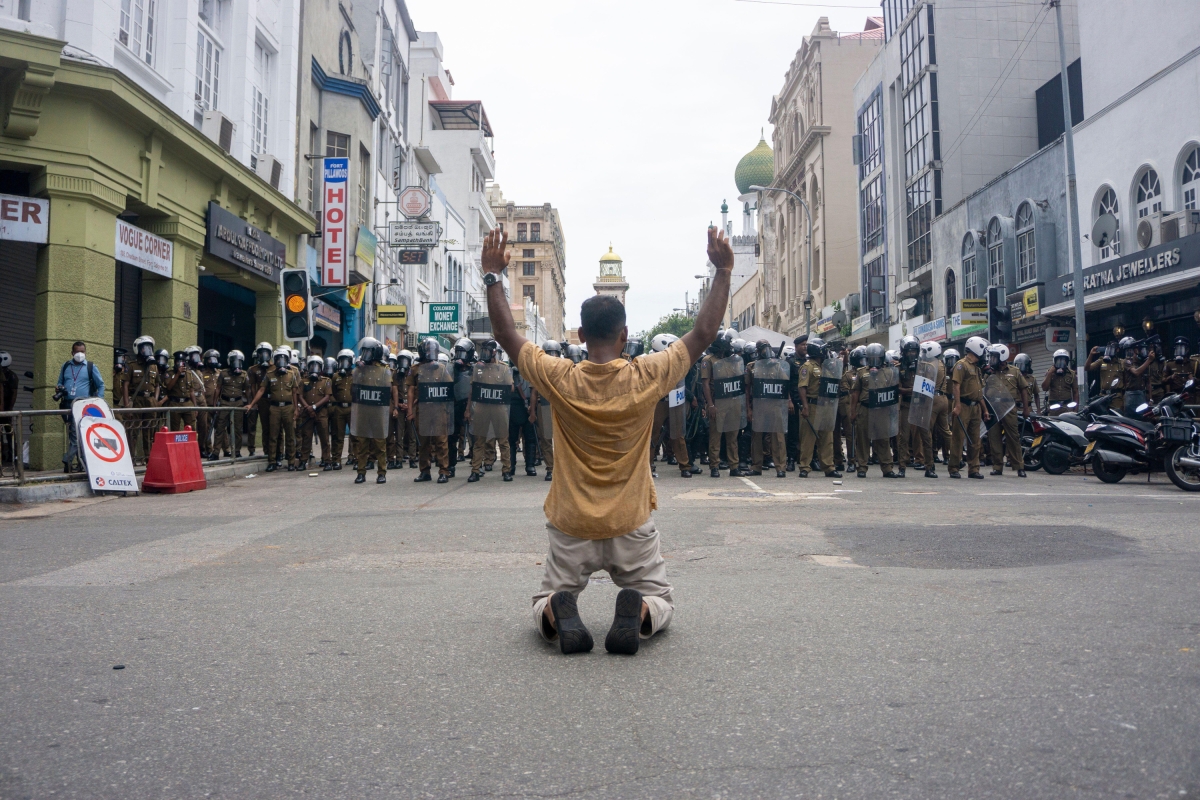
A man kneels before police during a protest held by a group of farmers near the presidential palace in Colombo, Sri Lanka on July 6, 2022.
Isura Nimantha/Alamy
magazine text block
More of the Same, or Some Change?
Sri Lanka has had many opportunities to make systemic change and correct historical wrongs. Its inability to do so has driven us to this crisis. In 1996, the entire country united after winning the cricket world cup; in 2004, a similar coming-together followed the tsunami; in 2009, at the end of the three-decades-long war and in 2015, when people voted for good governance, we saw yet more opportunities for lasting change. Instead, we wasted those opportunities. Politicians placed personal interest before national interest. And the people did not demand more from our leaders. Because politicians were able to squander opportunities to effect systemic change with no electoral consequences, they were emboldened to make the same self-serving decisions repeatedly. Even now in the midst of the crisis, the government — which is viewed by many as a proxy Rajapaksa government — has made little effort to initiate meaningful change. Instead, it is functioning in the same venal manner disregarding the demands of the people.
It is not, however, all doom and gloom. Until now, politicians in Sri Lanka were looked upon as god-like figures towards whom people were subservient and turned a blind eye to their actions, however serious. Over the years I have been involved in exposing government misdeeds, particularly on the talk show I host, Face the Nation. Despite the seriousness of the government malfeasance we’ve uncovered, time after time I have seen little public anger. With the protests, we are beginning to witness a shift in this. This was a visible feature: Anyone that visited the Galle Face site would have witnessed slogans and chants all demanding accountability and answers.
The most important positive change is greater public understanding of the importance of holding public officials accountable, demanding answers on how public funds are being spent as well as reasons for government decisions. Sri Lankans are finally exercising their duties as citizens. The disappointing factor is that these demands are still being made mainly by civic activists, trade unions, human rights defenders, and marginalized populations. The middle classes and the privileged have become quiet since Wickremesinghe was appointed president. Now able to obtain their weekly ration of fuel, they do not appear concerned about the need for systemic change. They are instead keen to have citizen demands and protests cease, as they find them inconvenient and feel they undermine stability. Yet, it is only if these demands for systemic change are met that it will be possible to bring about long-term stability.
The other gap is lack of public awareness of the law and civic rights and duties. As a journalist, what struck me most during conversations with the public and protestors is the need to increase awareness about how democracy functions, why it is important to respect the law, and counter discrimination and bigotry and respect and celebrate the plural and diverse nature of Sri Lanka.
Sri Lanka is at that juncture again, when we have the opportunity to choose to change our destinies, not through cosmetic change but substantive change. This requires asking hard questions not only of the politicians, but also from ourselves, as we elect those who govern us. Without this, Sri Lanka will not achieve prosperity or peace.
